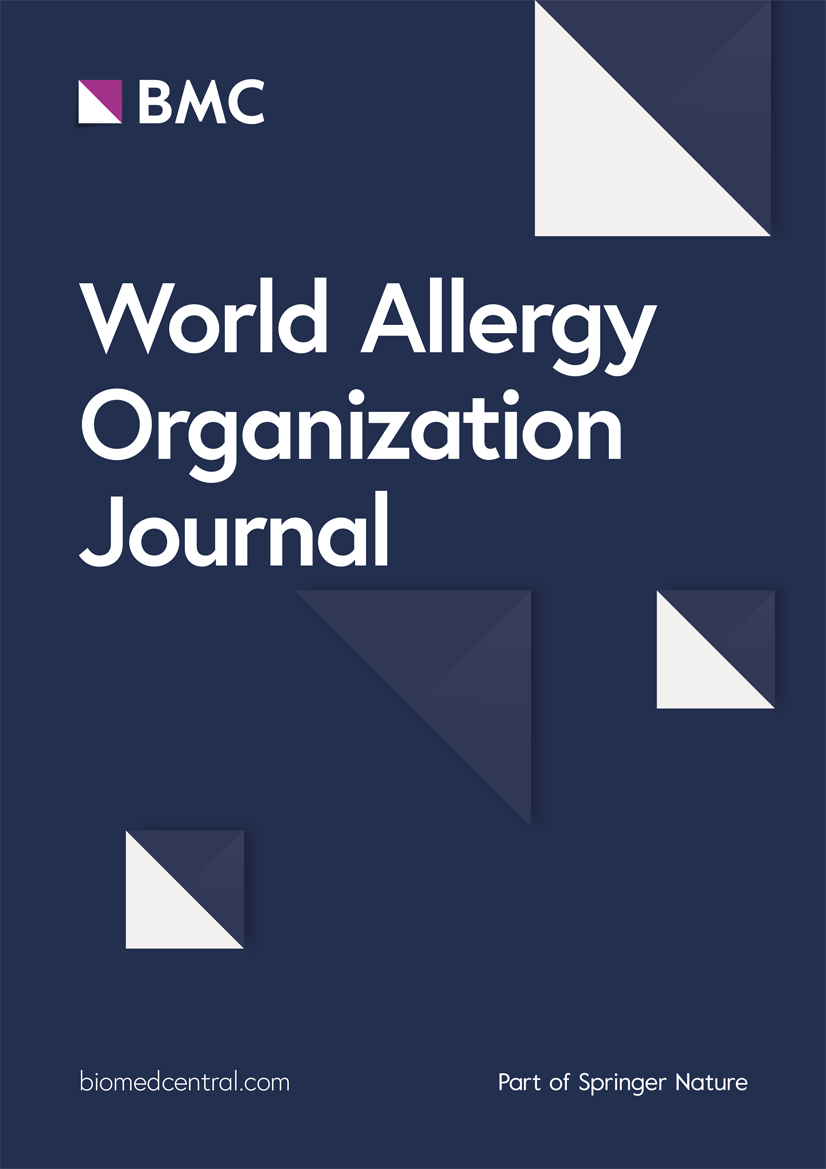米歇尔内酯通过MAPK/NF-κB信号通路对哮喘炎症和氧化应激的保护作用
IF 4.3
2区 医学
Q2 ALLERGY
引用次数: 0
摘要
哮喘涉及氧化应激失衡和NLRP3炎性体的激活。Micheliolide (MCL)是一种倍半萜内酯类化合物,具有良好的抗炎作用。然而,其治疗哮喘的潜力仍未被探索。目的探讨MCL治疗哮喘的分子机制。方法采用卵清蛋白诱导的哮喘小鼠模型和白细胞介素-4/肿瘤坏死因子激活的BEAS-2B细胞系,综合评价smcl对气道炎症、氧化应激和NLRP3炎性小体激活的影响。网络药理学分析用于评估哮喘和MCL之间复杂的相互作用。此外,我们分析了MAPK/NF-κB信号通路中涉及的关键因子的表达水平。结果MCL可有效减轻哮喘患者气道高反应性,抑制炎症反应,减轻氧化应激,抑制NLRP3炎性小体活化。此外,MCL对MAPK/NF-κB信号传导有明显的抑制作用。重要的是,MCL对哮喘炎症反应的抑制作用被NF-κB激动剂部分逆转,证实MCL通过MAPK/NF-κB信号通路对哮喘发挥作用。这些发现突出了MCL作为一种有效的哮喘治疗候选药物,并揭示了驱动其治疗效果的潜在分子机制。本文章由计算机程序翻译,如有差异,请以英文原文为准。
Protective effect of micheliolide against inflammation and oxidative stress in asthma through the MAPK/NF-κB signalling pathway
Background
Asthma involves oxidative stress imbalance and activation of the NLRP3 inflammasome. Micheliolide (MCL), a sesquiterpene lactone compound, has promising anti-inflammatory properties. However, its therapeutic potential in asthma remains unexplored.
Objective
We aimed to investigate the therapeutic potential of MCL in asthma by elucidating the molecular mechanisms.
Methods
MCL was administered to both an ovalbumin-induced asthmatic mouse model and an interleukin-4/tumour necrosis factor alpha-activated BEAS-2B cell line to evaluate its effects comprehensively on airway inflammation, oxidative stress, and NLRP3 inflammasome activation. Network pharmacology analysis was utilised to evaluate the intricate interactions between asthma and MCL. Additionally, we analyzed the expression levels of critical factors involved in the MAPK/NF-κB signalling pathway.
Results
The results demonstrated that MCL effectively mitigated airway hyperresponsiveness in asthma, suppressed inflammation, alleviated oxidative stress, and inhibited NLRP3 inflammasome activation. Furthermore, MCL exhibited notable inhibitory effects on MAPK/NF-κB signalling. Importantly, the inhibitory impact of MCL on asthmatic inflammatory responses was partially reversed by an NF-κB agonist, substantiating that MCL exerts its effects on asthma through the MAPK/NF-κB signalling pathway. These findings highlight MCL as a potent therapeutic candidate for asthma and shed light on the underlying molecular mechanisms driving its therapeutic efficacy.
求助全文
通过发布文献求助,成功后即可免费获取论文全文。
去求助
来源期刊

World Allergy Organization Journal
Immunology and Microbiology-Immunology
CiteScore
9.10
自引率
5.90%
发文量
91
审稿时长
9 weeks
期刊介绍:
The official pubication of the World Allergy Organization, the World Allergy Organization Journal (WAOjournal) publishes original mechanistic, translational, and clinical research on the topics of allergy, asthma, anaphylaxis, and clincial immunology, as well as reviews, guidelines, and position papers that contribute to the improvement of patient care. WAOjournal publishes research on the growth of allergy prevalence within the scope of single countries, country comparisons, and practical global issues and regulations, or threats to the allergy specialty. The Journal invites the submissions of all authors interested in publishing on current global problems in allergy, asthma, anaphylaxis, and immunology. Of particular interest are the immunological consequences of climate change and the subsequent systematic transformations in food habits and their consequences for the allergy/immunology discipline.
 求助内容:
求助内容: 应助结果提醒方式:
应助结果提醒方式:


